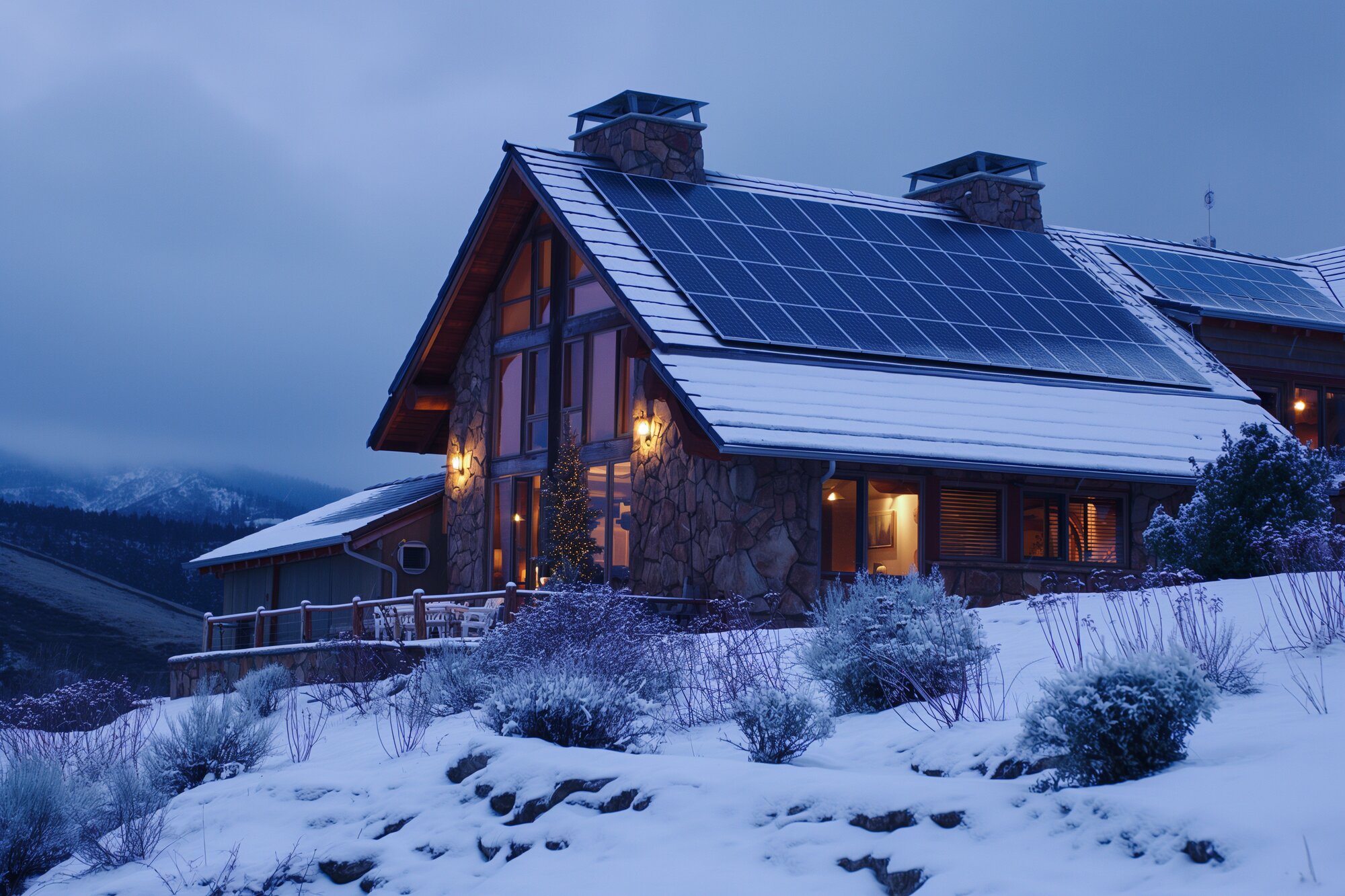How To Fireproof Your Home + Fire Safety Checklist
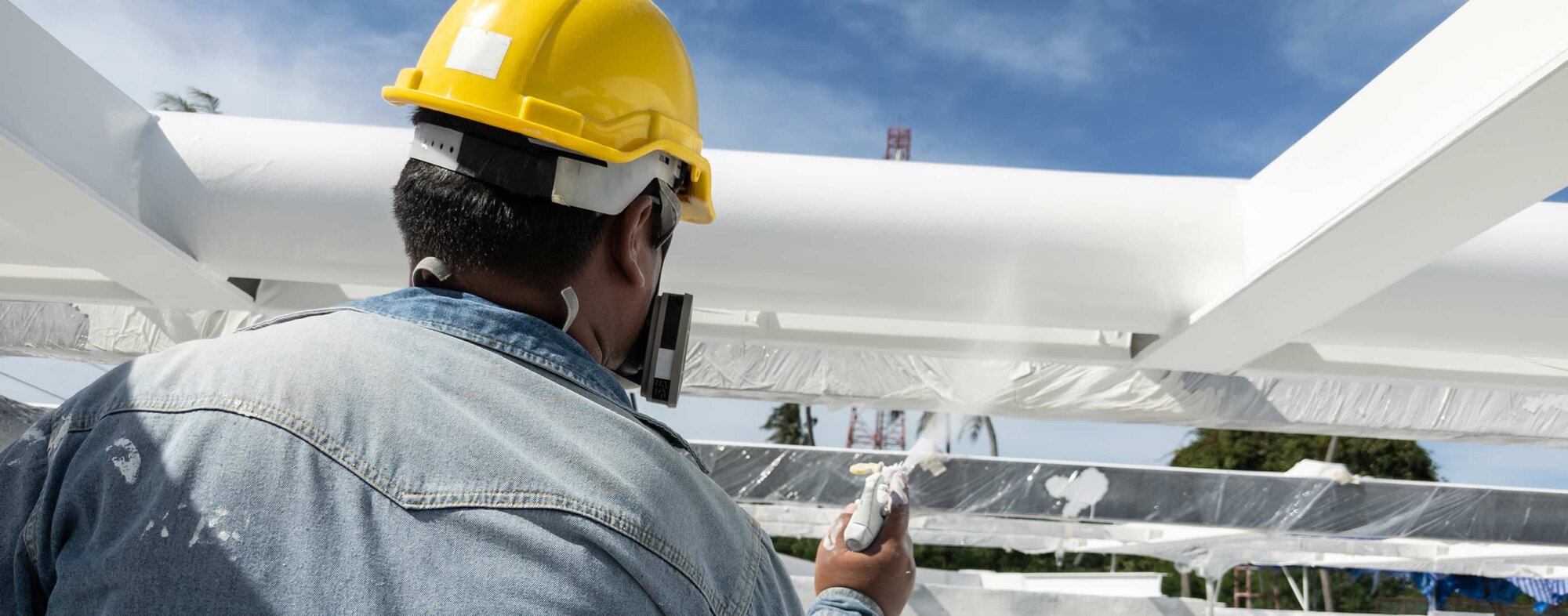
Your home is one of your biggest investments—and it deserves the best protection. As fire risks continue to threaten homes across the U.S., taking proactive steps to safeguard your property is essential.
Recent data puts this into perspective. A 2024 CoreLogic Wildfire Risk Report revealed that more than 2.6 million homes in 14 states were at moderate to very high risk of wildfire damage. The estimated cost of rebuilding these homes? Approximately $1.3 trillion. Moreover, wildfire risks aren't limited to just these 14 states. Homeowners across the U.S. should understand the specific risk factors in their area using tools like FEMA’s National Risk Index.
Meanwhile, research from the U.S. Fire Administration (USFA) reported 344,600 residential building fires in 2023, which is the latest data available. These incidents resulted in an estimated $11,266,200,000 in losses and thousands of deaths and injuries.
Fortunately, there are steps you can take to help reduce your risk. Consider reviewing your homeowner insurance policy for fire and wildfire coverage details. Knowing the ins and outs of your plan can help avoid potential gaps in protection and ensure your coverage limits are sufficient.
Once you confirm your coverage, it’s time to take action to protect your property. This guide will walk through multiple fireproofing strategies, from creating defensible space to using fire-resistant materials. Plus, we’ve included a free, downloadable checklist to help you confidently take action throughout the year.
1. Home hardening: Strengthen your home’s defenses
- Apply fire-retardant coatings: Fire-retardant coatings slow the ignition of decks, fences, and other wooden structures. However, these coatings require periodic reapplication.
- Install fire-resistant siding: Replace flammable siding with fire-resistant options like fiber cement or stucco to prevent flames from reaching your home's structure. When installing, seal gaps around windows, doors, and vents with fire-resistant caulk to help block embers from sneaking in.
- Upgrade to Class A fire-rated roofing: A Class A roof is your first line of defense against embers. Roof replacements are also one of the best home improvement projects for increasing a home’s value, making it a win-win for long-term safety and resale value. Metal, tile, and specialized asphalt shingles offer the highest fire resistance, but ensure proper, professional installation for maximum protection.
Unconventional home hardening methods
2. Defensible landscaping: Create a fire-safe perimeter
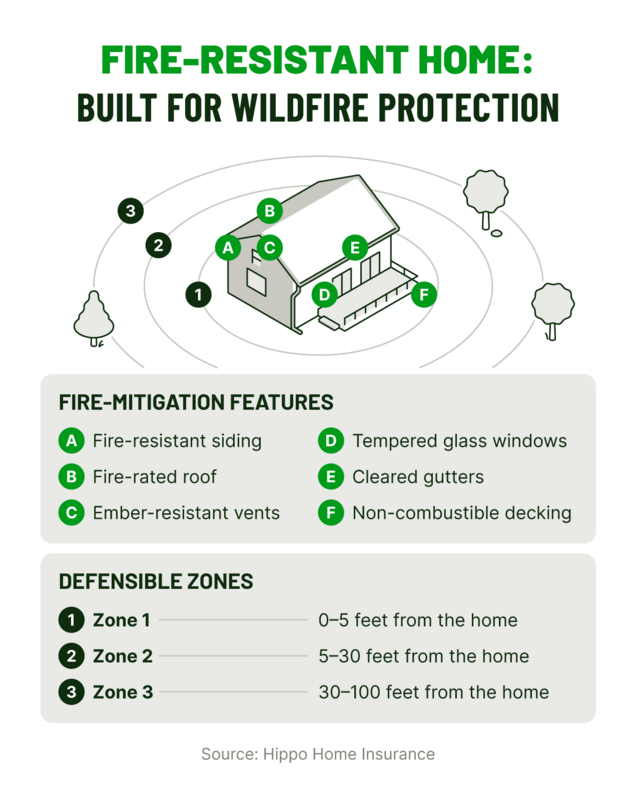

- Establish a 30-foot defensible zone: Regularly remove all flammable debris, such as dead leaves, pine needles, dry branches, and overgrown vegetation. This includes under decks, near fences, and around sheds. Prune trees and shrubs, keeping branches at least 10 feet from your roof and other structures. You should also store propane tanks and firewood at a minimum of 30 feet away from the house.
- Choose and maintain fire-resistant landscaping: Select drought-tolerant plants with a low resin content. Keep lawns mowed short, especially during dry periods. Water regularly (while conserving water where needed) to maintain healthy, less flammable vegetation.
- Create fuel breaks: Use non-combustible materials like gravel, concrete, or rock for pathways, patios, or other features to interrupt fire spread.
Unconventional defensible landscaping methods
3. Ember-proofing: Seal vulnerable entry points
- Seal gaps and cracks: Inspect around windows, doors, roof edges, and where pipes or wires enter the house. Use fire-resistant caulk or weather stripping to seal gaps or cracks, especially where different building materials meet.
- Cover gutters with non-flammable guards: Install non-flammable gutter guards to prevent the accumulation of leaves, pine needles, and other debris in your gutters. Regularly clean gutters to further reduce fire risk.
- Install fine metal mesh screens: To prevent embers from entering, cover all exterior vents, including attic vents, foundation vents, and eave vents, with fine metal mesh screens (1/8-inch mesh is recommended). Also, ensure your chimney has a spark arrestor.
- Use ember-resistant vents: Ember-resistant vents prevent embers from entering attics and crawl spaces. Replace all exterior vents with these specialized models and inspect them regularly.
- Enclose or screen under decks: Decks can trap embers and create a fire hazard. Enclosing the underside of your deck with fire-resistant sheathing or installing fine mesh screening can help prevent embers from accumulating.
Unconventional ember-proofing methods
4. Interior protection: Fireproof inside your home
- Close interior doors at night: Closing bedroom doors and other interior doors can significantly slow the spread of fire and smoke, giving occupants more time to escape in an emergency.
- Keep flammable materials away from heat sources: Move flammable furniture, curtains, and décor away from windows, fireplaces, stoves, and other heat sources. Store important documents in a fireproof safe or a metal filing cabinet with a high fire-resistance rating. For extra protection, consider keeping backup copies in a waterproof, fire-resistant box or a secure, offsite location.
- Install smoke detectors: You should install smoke detectors on every level of your home, including inside and outside bedrooms and in the attic. Check them monthly to ensure they are working, and replace the batteries annually or as needed.
- Keep fire extinguishers readily available: Keep a fire extinguisher in the kitchen and on each floor of your home, ensuring everyone in the household knows how to use them. Consider having a smaller extinguisher specifically for grease fires in the kitchen.
- Consider an interior fire sprinkler system: While a greater cost, home fire sprinkler systems can significantly reduce fire damage and increase the chances of survival. This could be a worthwhile investment for those in fire-prone areas.
Unconventional interior fire protection methods
5. Water solutions: Help combat fires in drought-prone areas
- Know your local water resources: Familiarize yourself with any nearby water sources, such as ponds, streams, or fire hydrants. While you shouldn't rely on these as your primary water source, knowing their location can be helpful in an emergency.
- Keep long hoses readily available: Have several long garden hoses that are capable of reaching any area of your property, even the roof. Keep these hoses connected to outdoor spigots and ready for immediate use.
- Maintain a dedicated water supply: Consider installing a water storage tank or reservoir specifically for fire protection. You can use this water to supplement your garden hoses or supply roof sprinklers. Firefighters may even draft it if necessary.
- Install roof sprinklers: Roof sprinkler systems can wet down your roof and surrounding areas, creating a barrier against embers and radiant heat. These systems can be activated manually or automatically when sensors detect high temperatures or smoke.
Unconventional water solutions in drought-prone areas
6. Emergency readiness: Have a fire escape plan
- Create and practice a fire escape route: Develop a detailed fire escape plan that includes multiple escape routes from every room in your house. Make sure all windows and doors are easy to open from the inside. Finally, designate a meeting point outside at a safe distance from your home.
- Keep emergency supplies accessible: Store emergency supplies in a readily accessible location. This kit should include flashlights, extra batteries, a first-aid kit, N95 masks (for potential smoke inhalation), fire blankets, a whistle (to signal for help), and a portable NOAA weather radio.
- Store important documents securely: Keep important documents, like insurance policies, birth certificates, and financial records, in a fireproof and waterproof safe. Consider storing a digital backup of these documents in a secure cloud service.
- Designate an out-of-town contact: Choose a friend or family member who lives outside your area to be your designated contact person. Everyone in the family should know this person's phone number and know to contact them after escaping a fire to confirm everyone's safety.
- Know your community's emergency alert system: Familiarize yourself with how your community notifies residents of emergencies, such as wildfires. This might include text alerts, reverse 911 calls, or local radio and television broadcasts.
Building with fire safety in mind: New construction homeowners’ advantage
Stay prepared: Fireproofing is an ongoing effort
Download the fireproofing solutions checklist
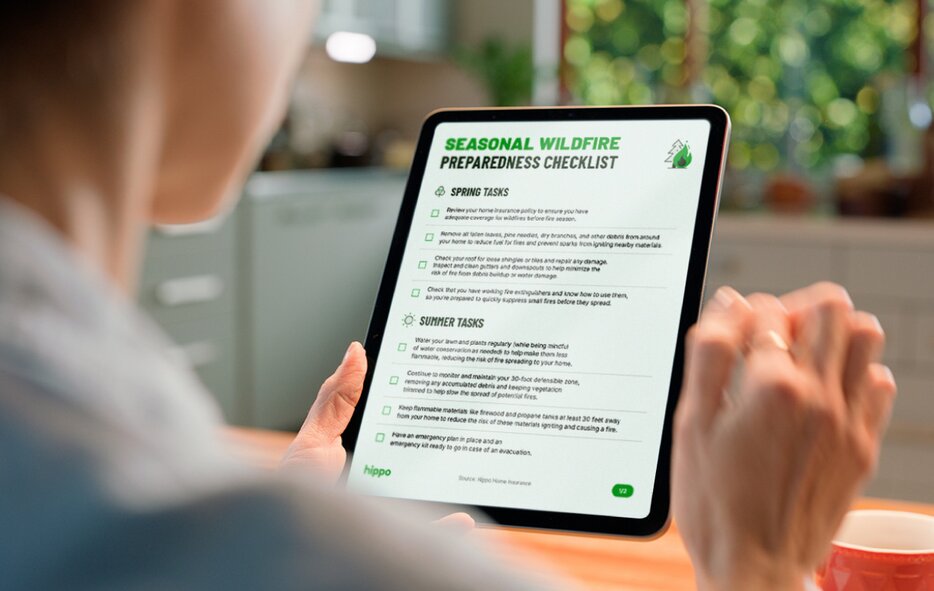
Related Articles
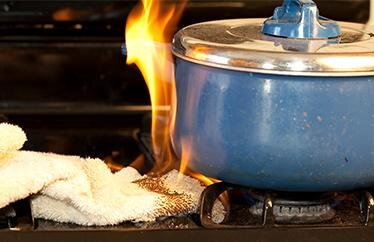
27 U.S. House Fire Statistics + Tips to Help Protect Your Home [2024]

Tips to Help Protect Against Wildfire Smoke

Your Guide to Senior Fire Safety
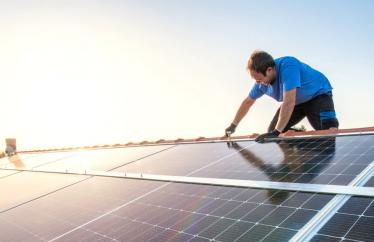
Building a Home For Your Climate + Best Climate-Resistant Materials
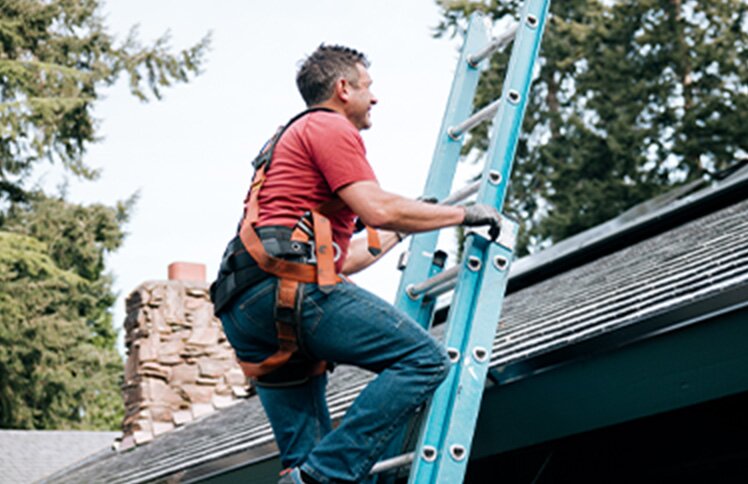
How to Help Climate Change at Home
